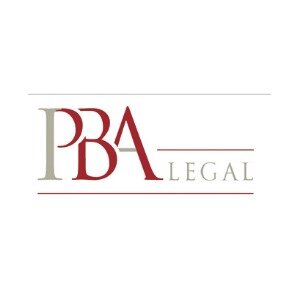Best Reinsurance Lawyers in France
Share your needs with us, get contacted by law firms.
Free. Takes 2 min.
Or refine your search by selecting a city:
List of the best lawyers in France
About Reinsurance Law in France
Reinsurance is a crucial component of the insurance industry, allowing companies to transfer portions of their risk portfolios to other parties to reduce the likelihood of paying a large obligation resulting from an insurance claim. In France, the reinsurance market is well-developed and governed by a combination of European Union regulations and national legislation. French reinsurance law encompasses the rules and regulations that apply to the contractual relationships between primary insurers and reinsurers, ensuring that risk distribution is managed efficiently and transparently.
Why You May Need a Lawyer
Engaging a lawyer specializing in reinsurance can be essential in various situations:
- Contract Negotiations: Lawyers can help draft and negotiate reinsurance contracts to ensure that terms are favorable and legally sound.
- Dispute Resolution: In cases of disagreements between insurers and reinsurers, legal guidance is necessary to mediate or litigate disputes effectively.
- Compliance Issues: Compliance with European and French laws and regulations can be complex, requiring specialized legal advice.
- Mergers and Acquisitions: Legal advice is critical during M&A activities in the reinsurance industry to navigate regulatory requirements and contractual complexities.
Local Laws Overview
The regulatory framework for reinsurance in France is largely shaped by EU directives such as Solvency II, which sets capital requirements to ensure insurers can meet their obligations. Additionally, the French Insurance Code provides specific national regulations governing reinsurance contracts and operations. The Autorité de Contrôle Prudentiel et de Résolution (ACPR) plays a key role in supervising and regulating insurance and reinsurance activities, ensuring financial stability and compliance with legal norms.
Frequently Asked Questions
What is reinsurance, and how does it work?
Reinsurance is a process where multiple insurance firms share risk by purchasing insurance policies from other insurers to limit the total loss they would face in case of disaster.
Why is reinsurance important?
Reinsurance helps insurers manage risk, stabilize earnings, protect against catastrophic losses, and increase capacity, allowing them to underwrite more policies.
What types of reinsurance are available in France?
The primary forms of reinsurance include facultative reinsurance, which covers specific individual risks, and treaty reinsurance, which covers entire books of business.
Are reinsurance companies regulated in France?
Yes, they are regulated by both the EU directives such as Solvency II and the French Insurance Code, supervised by the ACPR.
What is Solvency II, and why does it matter?
Solvency II is an EU Directive establishing a common regulatory framework for insurance and reinsurance companies, focusing on capital requirements and risk management.
How are reinsurance contracts governed?
Reinsurance contracts in France are governed by the French Insurance Code and must comply with applicable EU regulations and any specific terms agreed upon by the parties involved.
What are some common disputes in reinsurance?
Common disputes arise over contract interpretations, claim settlements, the accuracy of underwriting results, and coverage issues.
Can reinsurance contracts be terminated early?
Early termination is possible but typically involves specific conditions outlined in the contract, such as mutual agreement or breach of contract.
What happens if a reinsurer becomes insolvent?
If a reinsurer becomes insolvent, policyholders may face challenges in recovering claims. Legal and regulatory mechanisms, however, exist to manage such risks and protect parties involved.
What is the role of the ACPR in reinsurance?
The ACPR regulates and supervises the financial sector in France, including reinsurance, to ensure market stability and adherence to regulatory standards.
Additional Resources
For further information and assistance, consider the following resources:
- Autorité de Contrôle Prudentiel et de Résolution (ACPR): The French regulatory body overseeing the reinsurance market.
- Fédération Française de l’Assurance (FFA): The French Insurance Federation offers insights and reports on the industry.
- European Insurance and Occupational Pensions Authority (EIOPA): Provides EU-wide regulation guidance applicable to the French market.
- Legal Publications: Industry journals and publications can offer updates and in-depth articles about current trends in reinsurance law.
Next Steps
If you require legal assistance in reinsurance, consider taking these steps:
- Identify Specific Needs: Determine whether you need help with contract negotiations, regulatory compliance, dispute resolution, or another issue.
- Consult a Specialist: Engage with a lawyer specializing in reinsurance and financial services to acquire expert advice tailored to your situation.
- Prepare Documentation: Gather all relevant documents, such as contracts, correspondence, and financial statements, to aid your lawyer in understanding your case.
- Discuss Your Options: Work with your lawyer to explore possible outcomes and strategies to manage your reinsurance legal matters effectively.
Lawzana helps you find the best lawyers and law firms in France through a curated and pre-screened list of qualified legal professionals. Our platform offers rankings and detailed profiles of attorneys and law firms, allowing you to compare based on practice areas, including Reinsurance, experience, and client feedback.
Each profile includes a description of the firm's areas of practice, client reviews, team members and partners, year of establishment, spoken languages, office locations, contact information, social media presence, and any published articles or resources. Most firms on our platform speak English and are experienced in both local and international legal matters.
Get a quote from top-rated law firms in France — quickly, securely, and without unnecessary hassle.
Disclaimer:
The information provided on this page is for general informational purposes only and does not constitute legal advice. While we strive to ensure the accuracy and relevance of the content, legal information may change over time, and interpretations of the law can vary. You should always consult with a qualified legal professional for advice specific to your situation.
We disclaim all liability for actions taken or not taken based on the content of this page. If you believe any information is incorrect or outdated, please contact us, and we will review and update it where appropriate.
Browse reinsurance law firms by city in France
Refine your search by selecting a city.















